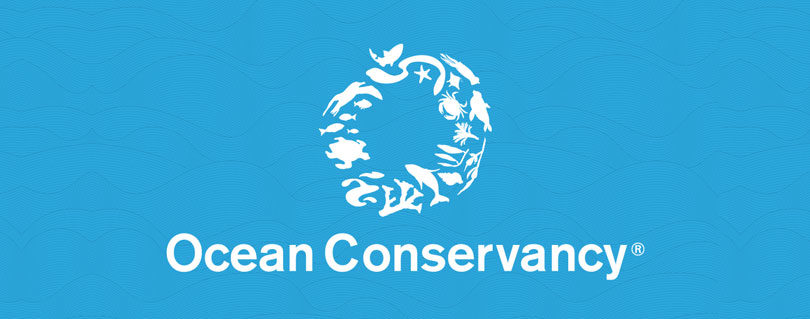A Conversation with Dr. Ayana Elizabeth Johnson
Published by Ocean Conservancy
A few months ago, I wrote a blog about searching for traces of Dr. Roger Arliner Young’s legacy on her alma mater, Howard University’s campus and coming up empty handed. Despite being the first African-American woman to earn her doctorate in zoology, her absence speaks volumes about equity, diversity and inclusion not only within the sciences, but society at large.
As a Roger Arliner Young Marine Conservation Diversity Fellow, I am privileged to have the opportunity to uphold her legacy. Her story is one of perseverance and grit, of overcoming impossible odds and the relentless pursuit of knowledge. For me, it continues to serve as a poignant reminder of all the concealed stories we have yet to uncover.
For this reason, it was an incredible opportunity to be able to speak with Dr. Ayana Elizabeth Johnson, a recognized and celebrated marine biologist and conservation strategist. It’s not every day that you get the chance to speak with such an inspiring woman of color, particularly as we celebrate Black History Month. Our conversation was illuminating and insightful. Here are some of the highlights:
Emi Okikawa: What inspired you to pursue a career as a marine biologist/conservation strategist?
Dr. Johnson: Oh gosh. That’s either a really long answer or a really short one. The short answer is the ocean is amazing and I fell totally in love with it when I was a little kid and I saw a coral reef for the first time in the Florida Keys. I just remember holding a sea urchin in my hand and feeling all of its crazy tube feet. I have a soft spot for invertebrates.
The longer answer is that I care about coastal communities. I’m trained in the sciences but I’m not doing scientific research anymore. Instead, I’m using that background to think more about what it means to do ocean conservation through a social justice lens, taking care of coastal communities who are most threatened by overfishing, climate change, pollution, sea level rise and storms. I’m thinking through how we might achieve conservation goals while taking care of these folks—who are mostly poor people and people of color—who are at risk.


Emi: What were the pivotal moments in your academic/professional career that led you to where you are today?
Dr. Johnson: The first real moment was studying abroad in the Caribbean and evaluating a marine protected area to see if it was actually helping the community and the local fishermen. It was an opportunity to think about the socioeconomics of ocean conservation in a quantitative way. That solidified for me the idea that ocean conservation is a multidisciplinary, fascinating puzzle.
There was another big moment with the different movements that are burgeoning right now, whether it’s Black Lives Matter or the Women’s March, support for immigrants or Standing Rock. This last year has been a moment where you reevaluate what you’re spending your time on. We’ve been forced to consider big issues we care about and think about whether we’re making a difference through our work. And for me the outcome of that introspection was that I doubled down on approaching conservation through this lens of supporting at-risk communities.
Emi: What’s the biggest challenge that we face when integrating equity, diversity and inclusion into environmental NGOs or conservation organizations in general?
Dr. Johnson: I think that organizations are going to have to make a very deliberate effort. It definitely requires some thought and some strategy on the part of the organization, not just for recruitment, but thinking about how to create environments where people would actually be comfortable staying. It’s about retention too.
Emi: Do you have any advice in amplifying your voice and message?
Dr. Johnson: Think about who might be interested who aren’t the usual suspects? How can you talk about the ocean in a broader context? It’s not just about the ocean. It’s not just about marine life—even though I’m madly in love with octopuses. It’s about connecting the dots and helping people to understand how ocean conservation is actually related to the issues they care about. We all need healthy oceans. We need to focus on building relationships with different organizations and individuals who have that overlapping intersectionality.
Emi: Finally, on a more optimistic note, what is something that gives you hope for the future?
Dr. Johnson: I feel like corporations are starting to step up and do more to reform their practices without regulation being required, which is great because there’s certainly not a lot of top down regulation happening in the U.S. right now. And we’re seeing a lot of corporations start to do their part because they’ve been pushed by NGOs. For example, Ocean Conservancy’s work on the Trash Free Seas Alliance® and pushing for plastic reduction. Those things give me hope.


To learn more about Dr. Johnson’s work and perspectives:
- How to Use the Ocean Without Using it Up, TED talk
- 6 Lessons for Effective Science-based Ocean Conservation, National Geographic Blog
- Top 20 Ocean Conservation Wins of 2017, National Geographic blog
- The Shuri Effect: A Generation of Black Scientists?, Scientific American blog
- Find her on Twitter @ayanaeliza and Instagram @ayana.elizabeth
The post A Conversation with Dr. Ayana Elizabeth Johnson appeared first on Ocean Conservancy.
Read the full article at: https://oceanconservancy.org/blog/2018/02/28/conversation-dr-ayana-elizabeth-johnson/


